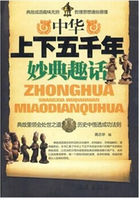The undertaking would seem to reasonable minds utterly absurd, and yet it must be admitted that Peter's project was scarcely more feasible. He had neither technical knowledge, nor the requisite materials, nor a firm foundation to build on. With his usual Titanic energy he demolished the old structure, but his attempts to construct were little more than a series of failures. In his numerous ukazes he has left us a graphic description of his efforts, and it is at once instructive and pathetic to watch the great worker toiling indefatigably at his self-imposed task. His instruments are constantly breaking in his hands. The foundations of the building are continually giving way, and the lower tiers crumbling under the superincumbent weight. Now and then a whole section is found to be unsuitable, and is ruthlessly pulled down, or falls of its own accord. And yet the builder toils on, with a perseverance and an energy of purpose that compel admiration, frankly confessing his mistakes and failures, and patiently seeking the means of remedying them, never allowing a word of despondency to escape him, and never despairing of ultimate success. And at length death comes, and the mighty builder is snatched away suddenly in the midst of his unfinished labours, bequeathing to his successors the task of carrying on the great work.
None of these successors possessed Peter's genius and energy--with the exception perhaps of Catherine II.--but they were all compelled by the force of circumstances to adopt his plans. A return to the old rough-and-ready rule of time local Voyevods was impossible. As the Autocratic Power became more and more imbued with Western ideas, it felt more and more the need of new means for carrying them out, and accordingly it strove to systematise and centralise the administration.
In this change we may perceive a certain analogy with the history of the French administration from the reign of Philippe le Bel to that of Louis XIV. In both countries we see the central power bringing the local administrative organs more and more under its control, till at last it succeeds in creating a thoroughly centralised bureaucratic organisation. But under this superficial resemblance lie profound differences. The French kings had to struggle with provincial sovereignties and feudal rights, and when they had annihilated this opposition they easily found materials with which to build up the bureaucratic structure. The Russian sovereigns, on the contrary, met with no such opposition, but they had great difficulty in finding bureaucratic material amongst their uneducated, undisciplined subjects, notwithstanding the numerous schools and colleges which were founded and maintained simply for the purpose of preparing men for the public service.
The administration was thus brought much nearer to the West-
European ideal, but some people have grave doubts as to whether it became thereby better adapted to the practical wants of the people for whom it was created. On this point a well-known Slavophil once made to me some remarks which are worthy of being recorded. "You have observed," he said, "that till very recently there was in Russia an enormous amount of official peculation, extortion, and misgovernment of every kind, that the courts of law were dens of iniquity, that the people often committed perjury, and much more of the same sort, and it must be admitted that all this has not yet entirely disappeared. But what does it prove? That the Russian people are morally inferior to the German? Not at all. It simply proves that the German system of administration, which was forced upon them without their consent, was utterly unsuited to their nature. If a young growing boy be compelled to wear very tight boots, he will probably burst them, and the ugly rents will doubtless produce an unfavourable impression on the passers-by; but surely it is better that the boots should burst than that the feet should be deformed. Now, the Russian people was compelled to put on not only tight boots, but also a tight jacket, and, being young and vigorous, it burst them. Narrow-minded, pedantic Germans can neither understand nor provide for the wants of the broad Slavonic nature."
In its present form the Russian administration seems at first sight a very imposing edifice. At the top of the pyramid stands the Emperor, "the autocratic monarch," as Peter the Great described him, "who has to give an account of his acts to no one on earth, but has power and authority to rule his States and lands as a Christian sovereign according to his own will and judgment."
Immediately below the Emperor we see the Council of State, the Committee of Ministers, and the Senate, which represent respectively the legislative, the administrative, and the judicial power. An Englishman glancing over the first volume of the great Code of Laws might imagine that the Council of State is a kind of Parliament, and the Committee of Ministers a cabinet in our sense of the term, but in reality both institutions are simply incarnations of the Autocratic Power. Though the Council is entrusted by law with many important functions--such as discussing Bills, criticising the annual budget, declaring war and concluding peace--it has merely a consultative character, and the Emperor is not in any way bound by its decisions. The Committee is not at all a cabinet as we understand the word. The Ministers are directly and individually responsible to the Emperor, and therefore the Committee has no common responsibility or other cohesive force. As to the Senate, it has descended from its high estate. It was originally entrusted with the supreme power during the absence or minority of the monarch, and was intended to exercise a controlling influence in all sections of the administration, but now its activity is restricted to judicial matters, and it is little more than a supreme court of appeal.















